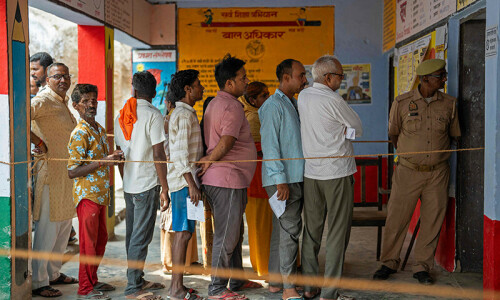
IN disqualifying a sitting, democratically elected prime minister, the Supreme Court has taken an extraordinary — and unfortunate — step.
This whole story could have played out very differently, in ways much less disruptive to the nascent democracy this country is trying to build, if the SC had steered clear of a course of action that has now brought the judiciary, parliament and the executive in direct confrontation with each other. At a number of junctures the court could have avoided pursuing the contempt of court case as doggedly as it did, especially considering that the larger issue — corruption — was a matter involving the president, not the prime minister. Legally there might have been a case against the prime minister, but it was best for the supreme judiciary not to have waded so deep into such obviously political waters. Even at a later stage, it could have let the speaker’s ruling — which has the backing of a parliamentary resolution — stand. If that was not possible, it could have declared her ruling unacceptable and referred the matter to the Election Commission rather than simply asking that body to issue a denotification. Even if the outcome had ultimately been the same, at least the court would not have taken on the role of directly disqualifying an elected prime minister. By doing so, it has both disrupted an existing democratic set-up and set a worrying precedent for the future.
But the damage has been done. And the PPP has an important choice to make. The party should now take the high moral ground and focus on the system rather than the individual. There are disruptive options: refusing to accept the order, for example, or delaying the matter by using the constitution to argue that the president can ask the prime minister to continue in office until a new one is appointed. For the sake of preserving the system, if the party has reservations against the judgment it should express these, perhaps even through a strongly worded parliamentary resolution, have Mr Yousuf Raza Gilani step aside and parliament elect a new prime minister as soon as possible.
Indications are that the ruling coalition has already embarked on this course. But it is still deeply unfortunate that matters have come to this stage; completing the five-year tenure of both an elected government and its chief executive would have been a much-needed win for Pakistan. What is critical now is that elections are held, whether early or on time and as free and fair as possible, so that the final judgment can be left to the people’s court.










































